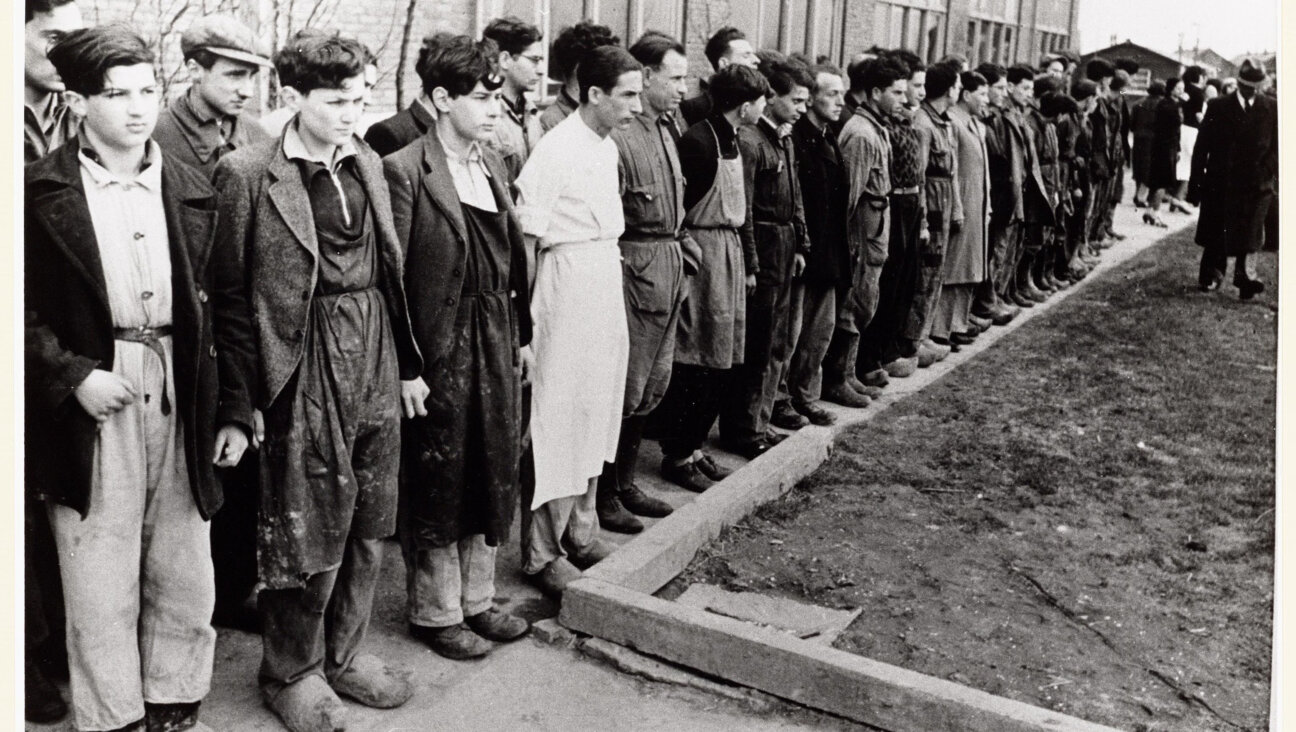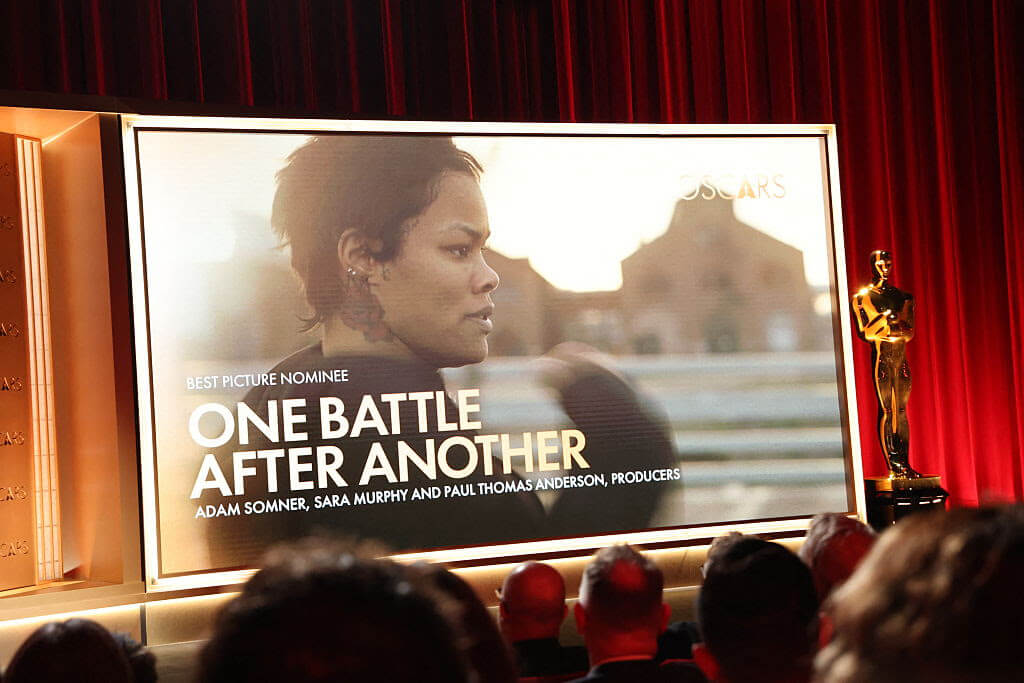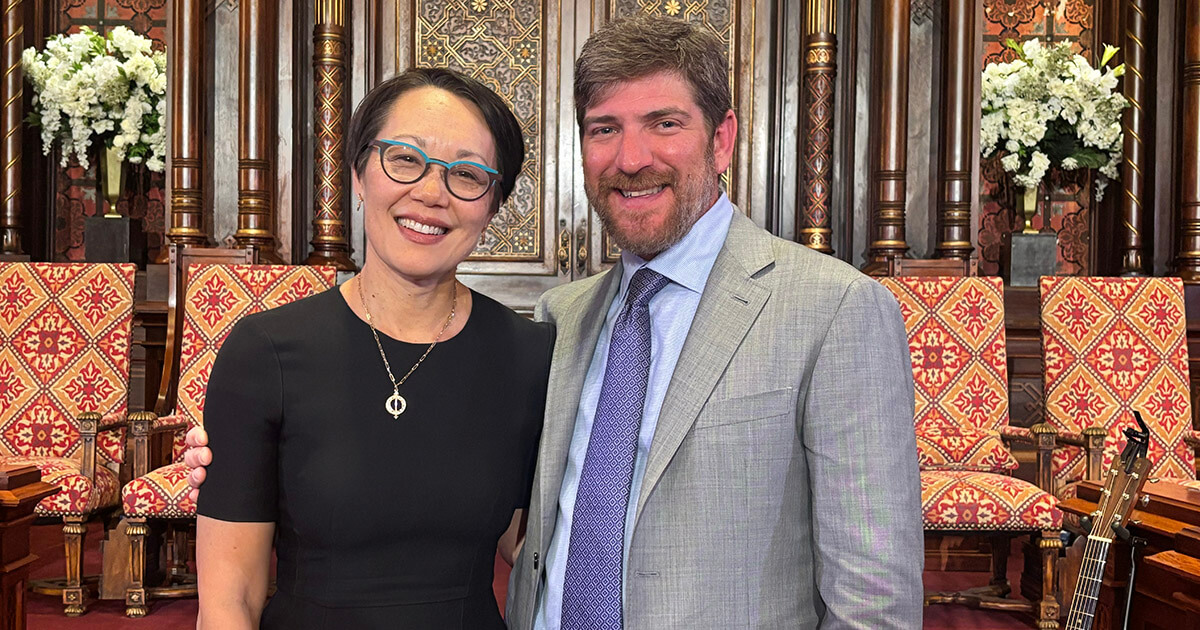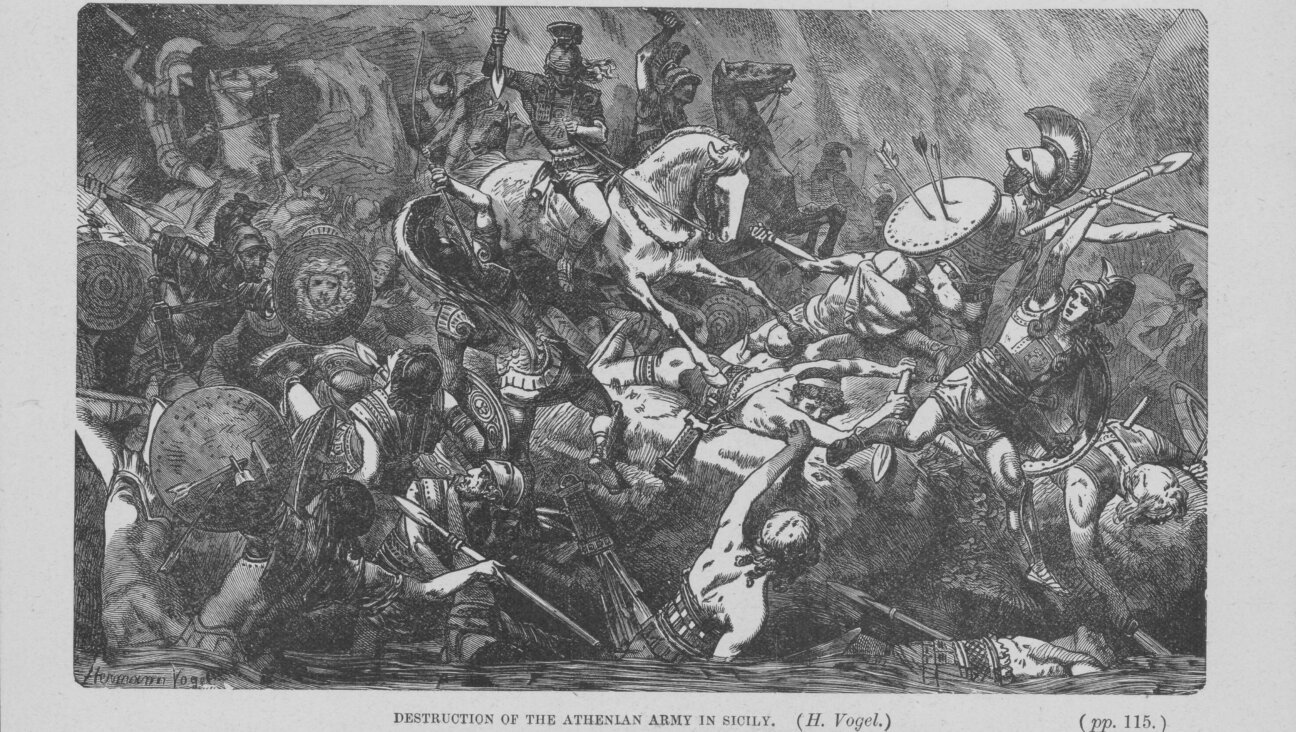Jewish Mother, R.I.P.
The Jewish Mother, one of the most dominating icons of 20th-century American popular culture, has died. News of her death was released, inadvertently, by Brandeis University history professor Joyce Antler in “You Never Call! You Never Write! A History of the Jewish Mother.” Mother — also known as MA!!!!! — was 90 years old, give or take.
Known in some circles as a figure of generosity and deep warmth, in others as the skilled practitioner of toxic enmeshment, the Jewish Mother was acknowledged, here and abroad, as the symbol of overinvolvement in children’s lives.
She was also known for her chicken soup.
The Jewish Mother is survived by her neurotic yet high-achieving, dependent though viciously ungrateful, sexually repressed yet rapacious, impossible-to-satisfy son and her primped and posed, nose-jobbed and outfitted, long-suffering-yet-somehow-exactly-like-her daughter (both well-fed); innumerable books, radio serials, television shows, movies, songs, articles, nightmares — not to mention more jokes than Egypt had locusts; the field of American stand-up comedy, born of those locusts; Guilt, her lifelong companion; the word “Feh”; thousands of appreciative psychoanalysts; and several acquaintances from her stint at The Dayenu Home for Aging Stereotypes, including Sassy, Overweight Black Mom and Finger-Snapping Gay Best Friend.
Between the 1920s and ’70s, the Jewish Mother emerged as a hallmark of American humor, a nearly foolproof ingredient for comedic success. As the bridge between the piety of Old World roots and the allure of New World desires, she embodied the essential conflict — and thus comedic potential — of acculturation. In her early years, she ruled every medium in American popular culture, with starring roles in the first family sitcom on both radio and television (Gertrude Berg’s “Meet the Goldbergs”) and in Al Jolson’s “The Jazz Singer,” the first feature film to include spoken dialogue. Indeed, the “historic first sound in any film,” as Antler notes, was a conversation between a Jewish mother and her child.
But the Jewish Mother’s career recently hit a rough patch from which she seemed unable to recover (see: Drescher, Fran). Although eyewitnesses have reported seeing small audiences of nervous WASPs giggling at the my-son-the-doctor!-would-it-kill-you-to-put-on-a-sweater?-oy-vey routine, critics and advocates alike agree that the past decade has seen almost no new, genuinely funny jokes about the Jewish Mother. The publication this spring of two books — “The Portable Jewish Mother: Guilt, Food, And…When Are You Giving Me Grandchildren” by Laurie Rozakis and “Yiddishe Mamas: The Truth About the Jewish Mother” by Marnie Winston-Macauley — fanned the flames of speculation, with many left feeling that they too would rather sit in the dark, forever and ever, than hear one more time the joke about the number of Jewish sons it takes to screw in a lightbulb. The bad news continued when Judy Gold, one of the funniest comedians in American stand-up, put out the flat “25 Questions for a Jewish Mother,” whose shopworn Jewish-Mama humor suggested that “25 Ways To Kill — And Not In the Good Way” might have been a better title.
Finally, Antler’s book seemed to confirm the rumors for good. “In the sense that today’s parents are deeply, and perhaps inappropriately, involved in all manner of their children’s daily lives, even those of adolescents and older children, the anxious modern middle-class parent may be said to resemble caricatures…of the past,” she writes. In other words, many real-life American women today are actually parenting like the stereotype, earning denigration as hover mothers, helicopters, smother mothers and more. The stereotype isn’t a stereotype anymore: We’re all Jewish mothers now.
And it’s not funny.
The Jewish American Mother, like all caricatures, derived from certain real-life phenomena. She emerged at the beginning of the last century, when millions of Jews uprooted themselves from Eastern Europe and set out to create new lives, and lifestyles, in America. Most had spent decades living under the constant threat of pogroms, terrifying attacks in which rioters set upon homes, synagogues, even whole towns with murderous rage. (That Fiddler? He was on the roof for a reason.) They were traumatized, and many — women in particular—brought with them to this country a deep-seated protectiveness for the well-being of their family members.
America was blessedly different when it came to antisemitism, but it was also dissimilar and strange in every other regard as well, and perhaps nowhere were these differences felt more acutely than within the nuclear family. The new world valued money more than religion, leaving struggling immigrant men — who had once earned respect through their role in spiritual life—at sea in the new world. “With the father’s loss of masculine potency and status,” Antler explains, “the Jewish mother’s power within the family increased to fill the void”—so much so, in fact, that she soon became an “object of ‘sentimental veneration.’” As her children ascended into the pantheon of American popular culture, they brought this icon of saintly motherhood with them — and a star was born.
But this early success was nothing compared to the fame achieved by the Jewish Mother in the postwar decades, when she hooked up with the partner who brought sex and death to her routine of guilt and food: the Jewish Son. In the 1950s and ’60s, Jewish mothers “became the ‘first victims’ of the Jewish sons who sought to free themselves from Jewishness ‘in order to possess the fruits of the mainstream.’” If the goal became to join polite, gentile society and to live its life of rugged individualism, then the loud, ethnic, let-me-do-that-for-you mama became the enemy: sweet concern curdled into poisonous domineering. Mother and Son entered a “grueling and emotional battle of self-assertion,” in which the Jewish Mother’s insistent omnipresence inspired reactions of greater and greater frustration, fury, self-hatred and misogyny. Comedy gold.
The two were soon responsible for legions of hits. Early triumphs included Dan Greenberg’s 1964 bestseller, “How to be a Jewish Mother” — a book that sold more than three million copies in 15 editions — and hundreds, if not thousands, of jokes.
Q: Why do Jewish Mothers make great parole officers?
A: They never let anyone finish a sentence.
Q: What’s the difference between a Rottweiler and a Jewish Mother?
A: Eventually, the Rottweiler lets go.
And, yes:
Q: How many Jewish sons does it take to screw in a lightbulb?
A: None, I’ll just sit here in the dark.
And then there was Portnoy. Philip Roth’s 1969 masterpiece of enmeshment and its discontents gave the Jewish Mother her most breathtaking role imaginable. Lording authoritatively over her son’s body and mind, Sophie Portnoy loved him into an existential crisis: If she is me, who am I? To convince himself that he was not she, Alexander Portnoy took regularly to the one organ they didn’t share in common—and, with each stroke, managed to feel a little bit freer. The world laughed.
Now it seems the Jewish Daughter wants her say, as the new crop of books about the Jewish Mother attests. These authors try to milk the stereotype for humor, but — motivated either by an admirable sense of female solidarity or because it was simply not part of their experience — they tend to highlight the Jewish Mother’s essential goodness, dismissing her negative traits as irrelevant or overblown. The comedic results are mostly dismal.
In “25 Questions for a Jewish Mother,” Judy Gold and co-writer Kate Moira Ryan splice interviews with scores of women — on topics such as “Do you approve of your children’s choices?” and “Are you kosher?” — with Gold’s own story of struggling with her mother and then becoming one herself. In these memoiristic sections, the book is quite rewarding—poignant and sad and evocative and amusing. But it is not, in the truest sense, funny. In the introduction, Gold claims a reporter from this newspaper once berated her for being too cruel toward Jewish mothers, but, if the material in this book is any indication, I fear she may have heard wrong: She’s not nearly cruel enough. There is no vicious rebellion here, no sinful indiscretion bound to offend the genteel. Ironically, it is a book that most Jewish mothers would love to receive as a gift — and, in a genre made famous by Lenny Bruce’s foul mouth and Sophie Portnoy’s despoiled liver, that’s not exactly a good thing.
Rozakis’s “Portable Jewish Mother” and Winston-Macauley’s “Yiddishe Mamas” both present hodgepodges of historical anecdotes, Borscht Belt jokes, profiles of “great” Jewish women and lessons in how to be a Jewish mother (“in addition to the always handy ‘oy,’ the Yinglish-speaking mother can use a number of linguistic devices to register scorn and criticism”). Most of the substance is thin and stale, but the real problem is tone. Both authors costume themselves in immigrant syntax — “You want maybe to put a knife through your mother’s heart?” Rozakis asks at one points, then at another, “This you call a smile?” — a tic that only serves as a sad reminder of how far we have come from the generation in which this material was actually fresh. A Yiddish accent may be funny, but a put-on Yiddish accent is not.
“You Never Call! You Never Write!” is not meant to be humorous (and it’s not). Although she offers well-researched, insightful analysis of the stereotype in popular culture, Antler deflates what could have been a lively discussion of a controversial phenomenon with schoolmarmish peeks into the lives of “real” Jewish mothers — attempts to prove the negative image’s divergence from reality. Judge Jennie Loitman Barron, named American Mother of the Year in 1959 by the American Mothers Committee, was surely a smart, impressive lady, but — as upsetting as this may be to Antler—she has not had nearly the cultural resonance as Roth, who is given only slightly more attention in this book.
This interest in real mothers does serve Antler in one area: Her linking of the stereotype with the fact that swaths of women in contemporary middle and upper class American society have become overconcerned with every aspect of their children’s lives — a trend that now crosses all religious and ethnic boundaries. (Hello, Mrs. Sophie Gupta!) In fact, if these books have an audience, maybe it is these women. But if everyone has a Jewish mother now, shouldn’t Jewish mother jokes be more captivating? Why aren’t they funny anymore?
For starters, many are simply old and overused. More significantly, though, the stereotype’s vitality came from its specificities: the genuine fear felt by Jewish mothers, the oppression and shame felt by her children. Most American Jews are now several generations away from the roiling old-world and immigrant experiences that caused these feelings, and many non-Jews have none at all in their histories. If these jokes have appeal for people today, one can’t help but find it misguided — even perverse. I don’t know why American mothers are enmeshing more with their children these days, but I am sure it is not because they have been traumatized by decades of pogroms. Without proper context, this type of joke makes no sense. It is not humor that comes from lived experience; it’s nostalgia for something one never had.
Now, if you’ll excuse me, I have a bulb to screw in. This place needs some light.
Alana Newhouse is the arts and culture editor of the Forward.
Books discussed in this essay:
You Never Call! You Never Write!
By Joyce Antler
Oxford University Press, 336 pages, $24.95.
25 Questions for a Jewish Mother
By Judy Gold and Kate Moira Ryan
Voice, 240 pages, $22.95.
The Portable Jewish Mother: Guilt, Food, And…When Are You Giving Me Grandchildren
By Laurie Rozakis
Adams Media, 280 pages, $12.95.
Yiddishe Mamas: The Truth About the Jewish Mother
By Marnie Winston-Macauley
Andrews McMeel Publishing, 363 pages, $14.95.














